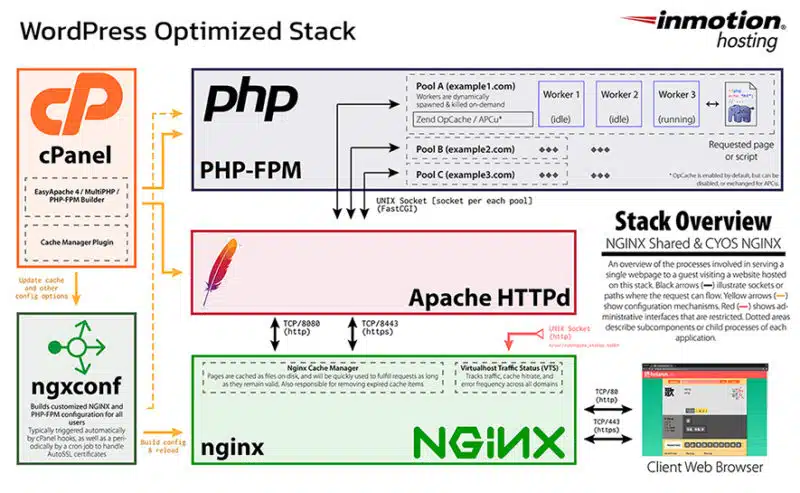Opinions expressed in this article are those of the sponsor. Search Engine Land neither confirms nor disputes any of the conclusions presented below.
Top 7 SEO tips for WordPress sites
Making small changes to your WordPress site can significantly increase your SEO.

If your WordPress site rank is not performing as expected, all hope is not lost.
There are a couple of things you can do to improve your SEO ranking. The seven methods outlined below are quick, simple, and proven to show results.
1. Make sure HTTPS is enabled
Using an SSL certificate to secure your website lets your viewers know your site is secure, which helps with ranking.
SSL certificates are available both free and paid. Once you have an SSL certificate installed for your site, use a plugin like Really Simple SSL to assure your content is served from the secure protocol.
2. Optimize your URLs
A good permalink structure is crucial to SEO-friendly URLs.
WordPress gives you this functionality from installation, but you can make changes to it with plugins for more modifications.
URL optimization is important when optimizing your pages on your site for certain search queries and keyword phrases.
Placing your primary keyword in the URL is considered a best practice for on-page SEO.
When a search engine crawls your site, it’s easy for them to understand what your content is about.
3. Use an SEO plugin
SEO plugins are a great way to diagnose and improve both technical and on-page SEO recommendations. Consider installing one of these recommended plugins.
- Yoast SEO – One of WordPress’s most popular plugins. The free version of Yoast boasts tools to help optimize your content for SEO and improve overall readability.
- Rank Math – Rank Math has an intuitive panel on your page or post that allows you to see changes that would positively affect your SEO.
4. Meta descriptions
Meta descriptions or tags is an element that summarizes the content of your post or page. It gives search engines a brief description of what they will read or find on your website.
A meta description should not be longer than 275 characters long as that is all Google will display.
A compelling meta description can bring more readers to your post, adding to your SEO rank. You will want to add your keyword to your meta description for easy lookups and add it to your content.
5. Craft good content
High-quality content is one of the best ways to improve your SEO. Good quality content goes deeper than the material you write or create on your website.
Assure you have a deep understanding of the subject you are writing about and do some keyword research to best capture your audience’s attention.
Avoid creating duplicate content on your site. Duplicate content refers to ideas or topics that have already been created or discussed on your website and will negatively affect your SEO score.
A good model to follow is the E-A-T model, which creates trust with your user and an overall better SEO ranking.
What is E-A-T content? Google uses search quality guidelines to ensure the content on a site is good for users. It is not a ranking factor for SEO, but it affects how your content is read.
E-A-T stands for the expertise of the writer, authoritativeness of the content or site itself and trustworthiness of the content provided.
Assuring your website has an about us page will show your authoritativeness and expertise to your readers. Because of this, collaborating with other experts contributes to your SEO.
6. Site optimization
Today, site speed is another important factor for SEO optimization, as serving content as fast as possible is what a lot of users need—every second matters.
Use a hosting provider that is optimized for your WordPress site with options such as NGINX or Redis for server-side caching.
An example of WordPress optimized hosting is InMotion Hosting’s Ultrastack, which uses NGINX to intelligently cache frequently-used resources to save memory.

Images should also be optimized. If they are too large or take too long to load, it will strain your website. Using a CDN (Content Delivery Network) to serve your content helps reduce load times.
The Jetpack plugin provides a free image CDN, but there are other hosting resources that can be used such as Cloudflare.
If your current hosting provider does not provide server-side caching, you can use a caching plugin such as W3 Total Cache or WP Rocket.
7. Keep an eye on your analytics
Google Search Console and Google Analytics go hand in hand to track how your website is performing. These metrics give you detailed information about how visitors interact with the content on your website.
Other resources are Bing’s Webmaster Tools and third-party options such as Semrush.
Utilizing these tools also allow you to review your keyword rate, as well as site speed.
Final words
SEO can be challenging, especially if you are a new website creator or small business owner; however, keeping the tips above in mind will help you along the way. Having the right foundation to start and creating good quality content will ensure your website and media rise to the top.
Get WordPress Hosting that’s optimized for performance and SEO.
Related stories
